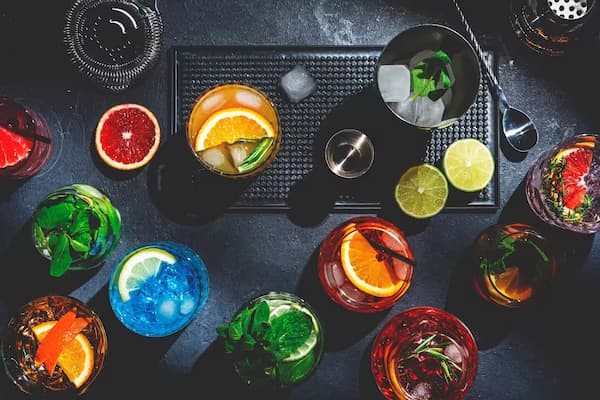Rose Water
With Rose Water you can make
We've got 1 cocktails that can be made with Rose Water.
Find out what to make with Rose Water
Q&A
What is the historical origin of rose water as a culinary ingredient?
Rose water's use in culinary traditions dates back to ancient times, with its origins often traced back to Iran (formerly Persia) as early as the 7th century. It was initially created as a byproduct of the process of extracting rose oil for use in perfumery. The distillation process for rose oil would yield rose water as a secondary product. Recognized for its delicate floral scent and flavor, rose water quickly found a place in Middle Eastern and South Asian cuisines. It was used for flavoring delicate sweets, pastries, and drinks. As trade routes expanded, so did the popularity of rose water, eventually making it a staple in various culinary traditions around the world, including mixology, where it's valued for its ability to add a subtle, floral note to cocktails.
How does rose water differ from other floral ingredients used in cocktails?
Rose water is unique among floral ingredients in cocktails because of its subtle, yet distinct, flavor and fragrance profile. Unlike lavender or hibiscus, which can have more pronounced and sometimes overpowering flavors, rose water lends a gentle and aromatic floral note that complements rather than dominates a drink. Its versatility allows it to pair well with a wide range of spirits and ingredients, from gin and vodka to citrus and herbs, without overshadowing their flavors. Moreover, because rose water is a byproduct of distilling rose petals for essential oils, it captures the essence of roses in a way that is both delicate and nuanced, making it a favorite among bartenders for creating sophisticated and aromatic cocktails.
What is the correct way to use rose water in cocktails to avoid overpowering the drink?
The key to using rose water in cocktails without overpowering the drink is moderation. Rose water is highly potent, so a little goes a long way. Start with just a few drops or a light spray and taste before adding more. Because of its strong flavor, it's best added to cocktails in small increments. Additionally, consider the other flavors in your drink; rose water pairs well with ingredients that can complement its floral notes without clashing. Incorporating it into a cocktail shaker with other liquids before mixing or using it as a mist or garnish on the final drink can also help distribute the flavor more evenly. Always taste and adjust according to preference, ensuring that the rose water enhances rather than dominates the cocktail.
Can rose water be used in non-alcoholic drinks, and if so, how?
Absolutely, rose water is a versatile ingredient that can easily be incorporated into non-alcoholic drinks to add a touch of elegance and flavor. It works particularly well in mocktails, iced teas, lemonades, and sparkling water. When using rose water in non-alcoholic beverages, the same rule of moderation applies: start with a few drops and adjust to taste. Rose water adds a refreshing and sophisticated twist to drinks, pairing nicely with flavors such as mint, cucumber, lemon, and berry. A popular option is to create a rose lemonade by adding rose water to lemon juice, sugar, and sparkling water, creating a refreshing and flavorful alternative to traditional lemonade.
What is the cultural significance of rose water in mixology and traditional drinks around the world?
Rose water holds significant cultural importance in many parts of the world, particularly in Middle Eastern, North African, and South Asian cultures where it has been used for centuries in both culinary and ceremonial contexts. In mixology, its adoption symbolizes a bridge between traditional flavors and contemporary cocktail craftsmanship. Bartenders around the globe use rose water to add a layer of complexity and allure to their creations, paying homage to its traditional uses while innovating new combinations. In countries like Iran and India, rose water is a traditional ingredient in celebratory drinks and desserts, reflecting hospitality and festivity. Its inclusion in cocktails and non-alcoholic beverages alike offers a taste of these rich cultural traditions, making it more than just an ingredient but a vehicle for cultural expression and exploration in mixology.
Ingredients like Rose Water
Other Soft Drinks
How it works
Easily create your bar from the ingredients you have at home, and we'll show you what you can make with the ingredients you have to hand.
Once you've added this ingredient head to your My bar page and fill up everything else you have.
We'll also show you cocktails that can make by substituting what you have for one of the ingredients you don't, riffing on the original. Now go forth and create something delicious!





















